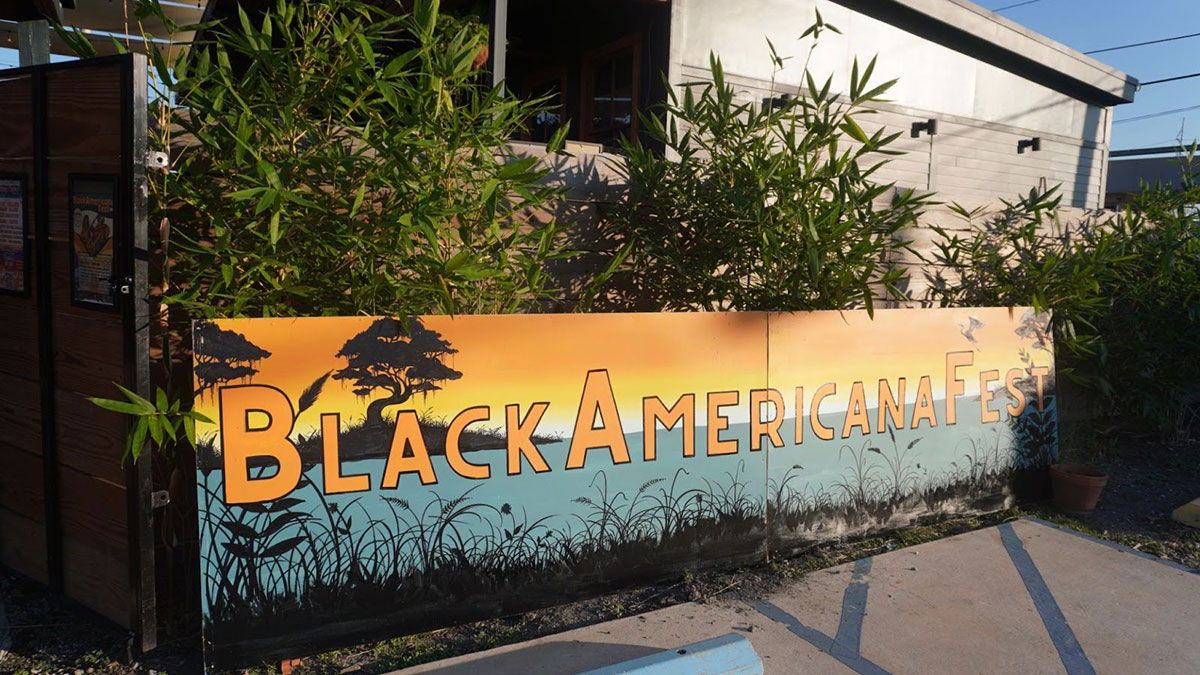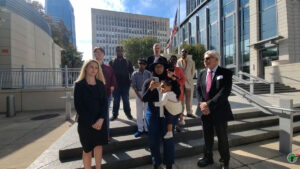When you walk into a place where history hums in every note, you feel it before you hear it. That was certainly the atmosphere at the second annual BlackAmericana Fest in New Orleans, which was a weekend that didn’t just celebrate music but reclaimed ownership of an entire sound.
The truth is simple: Black musicians did not borrow Americana. They built it. From the banjo to the blues, from the fields along the Mississippi River to the porches of the Delta, this sound was born of African rhythm and experience. But too often, the storytellers have been replaced, and the history rewritten. BlackAmericana Fest was created to correct that narrative.
Browse the photo album!

Musician Jenn Jeffers, known on stage as Dusky Waters, began this journey after realizing how deeply Black artistry ran through Americana and Folk traditions. Inspired by artists like Rhiannon Giddens, who traced the banjo’s origins to African craftsmanship, Jeffers decided to shine that same light on her own city. She reached out to Teena May, a local New Orleans performer and entrepreneur who once loved folk and country from the shadows, believing it “wasn’t for us.” Together with Chris Beary, they formed an alliance of creativity and conviction, which was determined to reclaim this sound and restore it to the community that made it.
The festival was part concert, part classroom, and part homecoming. Over the weekend, stages came alive with performances, while educational panels and art installations connected past and present. A centerpiece production featured five Big Chiefs telling the oral history of the Black Masking Indians. This breathtaking performance blended storytelling, rhythm, and costume artistry. Their presence linked African, Creole, and Native American traditions into one unbroken chain.
Panels like “Behind the Mask,” “Kermit Does Satch,” and “Fred Wesley’s Louisiana Roots” reminded audiences that these traditions aren’t museum pieces. They are living, breathing parts of New Orleans culture. The festival’s organizers are also producing a documentary to capture this storytelling for a wider audience.
This year’s theme celebrated the Black Masking Indians and honored 50 years of the Wild Tchoupitoulas, the groundbreaking family band that birthed the Neville Brothers legacy. The lineup featured powerhouse acts like The Headhunters and Dumpstaphunk, alongside performances by African students from Loyola University, bridging generations on one stage.
Behind the lights and music was an army of workers who made it all possible. Co-founder Chris Beary said it plainly: “For every person you see on stage, there are at least fifteen people behind them working.” One of the festival’s biggest goals is to pay those workers fairly, to prove that cultural work deserves dignity and sustainable support.
Held at The Broadside, the stage overlooked the same area that enslaved Africans, jazz pioneers, and gospel caravans crossed. Geography became part of the performance. The sound met the soil that birthed it.
Black Power 96 was on site both days, capturing everything from the electric stage energy to the subtle, soulful details, with hands clapping, feet stomping, children dancing, elders nodding along to the beat. Our coverage included scenes from the festival grounds and those moments that remind us culture lives in the African community.
BlackAmericana Fest is both celebration and correction. It reclaims credit for artistry long denied. It honors the ancestors who turned sorrow into song and turns that heritage into an inheritance for the next generation.
In an era when corporate media flattens culture into playlists, this festival re-tunes the frequency. It reminds us that when we control our narrative, we control our future.
BlackAmericana Fest is proof that our music, our stories, and our people still sounds off loud and strong.





